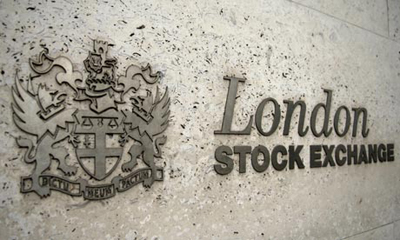Wednesday, 08 July 2015 17:31
 LONDON: Contagion from China’s equity rout engulfed emerging markets on Wednesday, particularly in Asia, hitting currencies and driving the main emerging equity benchmark into the red for the year.
LONDON: Contagion from China’s equity rout engulfed emerging markets on Wednesday, particularly in Asia, hitting currencies and driving the main emerging equity benchmark into the red for the year.
Also weighing on European emerging markets was the threat of a Greek euro exit, with a possible collapse of Greece’s banks seen taking a toll on Balkan and other regional economies. Chinese mainland shares fell 6-7 percent to four-month lows, shrugging off the government’s supportive measures.
Futures index products for July delivery slumped by their 10 percent daily limit, meaning investors are extremely bearish on all type of stocks.
The impact rippled across broader emerging and commodity markets, with copper prices near six-year lows on China growth worries while Hong Kong stocks lost 8 percent for their biggest one-day loss since 2008. Korean, Taiwanese and Indian markets fell 1.2 to 3 percent.
MSCI’s emerging equity index tumbled 3 percent, its biggest one-day fall since mid-2013 during the so-called taper tantrum and down 16 percent in the past six weeks.
Up 10 percent on the year by mid-April, the index is again in the red.
“People have been underestimating the potential collateral damage from what’s happening in China, people had taken their eyes off the real economy and this (market moves) is starting to focus attention on it again,” said John-Paul Smith, founder of emerging market consultancy Ecstrat.
Reflecting those fears, Chinese credit default swaps jumped to 22-month highs, according to Markit.
“We are seeing contagion to MSCI China, there are a number of economies impacted through the commodity channel.
Finally, EM funds had herded into Asia in recent months and now that we are getting contagion, you are going to see redemptions picking up,” Smith said. He described authorities’ desperate efforts to stem the panicky rout as “King Canute trying to hold back the tide.”
Asian currencies fell against the dollar. Malaysia’s central bank intervened to lift the ringgit off 16-year lows and the Korean won touched two-year lows.
In Europe, Polish stocks fell 0.3 percent to the lowest since Sept 2013 while bourses in Sofia and Bucharest, more exposed to Greece, fell 1.3 and 0.5 percent respectively . Moscow, hurt by oil’s tumble, shed 0.9 percent.
The rouble fell 0.7 percent while the Polish zloty and Hungarian forint touched five-month lows to the euro.
Polish CDS rose 3 bps to 78 bps, a fresh 17-month high, as the country’s more liquid markets are frequently used as a proxy for broader central European risk. Poland and Croatia are expected to keep interest rates steady later in the day.




























